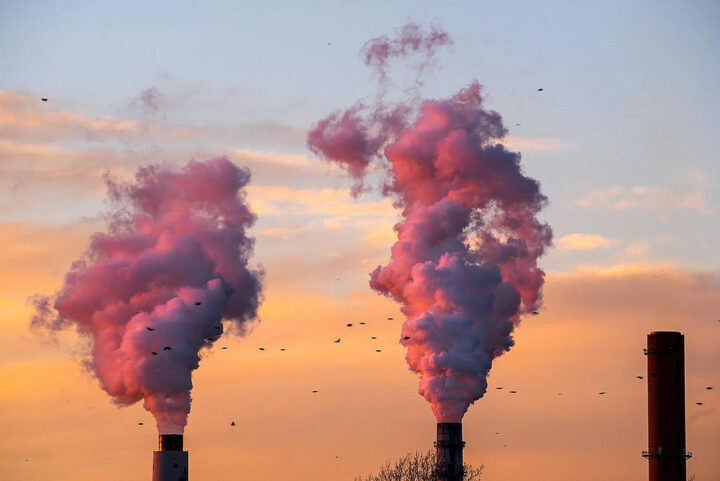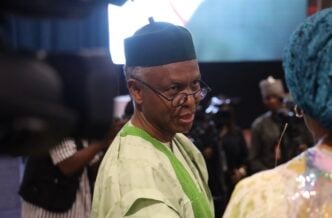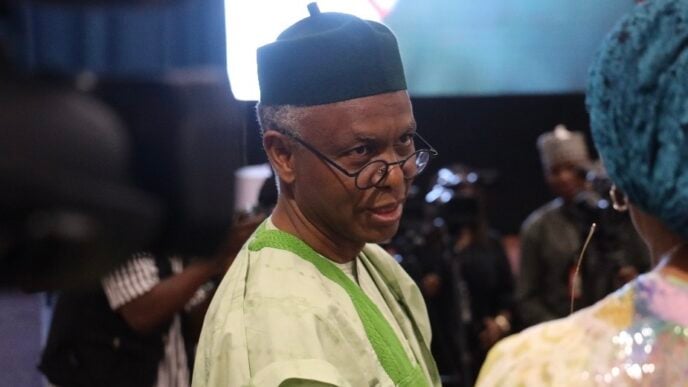BY DANIEL OLADOJA
Nigeria, Africa’s largest oil producer, has announced a 5% tax on all fossil fuel sales as part of its new tax law that goes into effect in January 2026. According to this new tax regulation, Nigerians are now expected to pay a “5% surcharge that is chargeable on fossil fuel products provided or produced in Nigeria”, a fee which, according to the stipulation of the act, “shall be collected at the time of a chargeable transaction, meaning at the point of sale”. This surcharge excludes clean or renewable energy products, household kerosene, cooking gas, and compressed natural gas (CNG).
The framing and the wording of this law make it an effort to put a price incentive on fossil fuel consumption, to shift consumption from fossil fuels to cleaner alternatives. This, in every sense, mirrors a carbon tax, even though in this case, a percentage was used instead of an explicit cost. Speaking of a carbon tax, a carbon tax is a sales tax applicable to fossil fuels or carbon-intensive fuels at the point of purchase. Depending on the country or jurisdiction, the primary aim of a carbon tax is to disincentivise the use of fossil fuels and, secondarily, to raise revenue for the government. This is known as the double dividend of carbon pricing.
Let us start with what the government of the day has got right. First, the surcharge or fossil fuel tax was not introduced in isolation. The tax was introduced as part of a broader framework of tax reforms, drawing inspiration from how Sweden introduced its carbon tax in the 1990s as part of a broader comprehensive tax reform. Such an approach helps reduce the risk of backlash and the possibility of the tax being struck down before it even takes off. Embedding the surcharge in a cocktail of tax policies insulates it from undue scrutiny. In the same vein, implementing the surcharge alongside other reforms ensures that the policy is in sync with other new regulations and aligns with the government’s direction of travel.
Advertisement
Nigeria’s 5% surcharge is a brilliant effort to wean the country off its long-term addiction to fossil fuels. This policy demonstrates proactive thinking and fiscal foresight on the part of the government. If done properly, it has the potential of helping to help decouple Nigeria’s economic growth from carbon emissions, actualise its NDC commitment, and mobilise finance for sustainable development. This comes after the government removed the problematic fuel subsidy two years ago, an effort that, coupled with the recent surge in electricity tariff, has led to an accelerated renewable energy adoption and an explosion in solar uptake. As a result, the country moved to 4th place in Africa for solar energy adoption in 2024 with an addition of 63.5 MWp of capacity, bringing its total installed capacity to 385.7 MWp as people scrambled to find cheaper alternative sources of energy.
The new tax policy, even though a brilliant emissions mitigation and revenue generation tool, is not without flaws. Applying a 5% flat rate on fossil fuels disregards growing inequality and income disparity in a country with a rapidly shrinking middle class. It doesn’t seem fair that both the rich and the poor in the poverty capital of the world should have to pay the same tax on fossil fuels. At best, a progressive surcharge that increases with a certain threshold would have been more practical for a country where millions of households and Small and Medium Scale Enterprises (SMEs) rely on petrol-powered generators to power their homes and businesses.
Fairness aside, there is also a big question mark about revenue utilisation. The 2025 Tax Act does not spell out or imply what happens to the revenue generated from the fossil fuel surcharge. While preliminary analysis suggests that this policy is more revenue-driven than environmentally motivated intervention, it is essential that the government clearly outlines how the revenue from the tax will be used. Sweden and British Columbia adopted a revenue-neutral approach to their carbon tax, which meant that the carbon tax essentially returned to citizens through tax cuts, rebates, and climate windfall payouts. Even though the Nigeria Act Law of 2025 does come with various cuts and reviews, none of them is directly related or designed to act as a cushion or corollary to the 5% fossil fuel tax.
Advertisement
Global best practices demand that a policy like this in a sensitive sector like energy should be accompanied by a clear framework for revenue monitoring, reporting, and utilisation to foster transparency and build citizens’ trust. The masses deserve to know that the surcharge is being deployed to finance the transition to a green, just, and cleaner future. The revenue from the tax could be used to replenish the climate fund and run the activities of the National Climate Change Council Secretariat (NCCCS), which is part of the provisions of the Climate Change Act of 2021. Rather than wait for foreign loans or grants, this tax could also help kick-start comprehensive nature-based adaptation efforts and finance resilience building through research and development in green technologies like batteries, electric vehicles, and charging stations.
The Intergovernmental Panel on Climate Change (IPCC) estimates that emerging economies and developing countries, minus China, need “about US$2.4 trillion annually by 2030 for climate and nature-related investments, plus an additional US$3 trillion to achieve the other Sustainable Development Goals. We have a mountain of deficit to climb; closing the climate finance gap requires innovative thinking that does not put us at the mercy of developed nations. As with every other climate policy, this one is not without pain, but if done effectively, the gain in the long run will eclipse the short-term pain. In Denmark, electric vehicles were the best-selling cars of 2024, all thanks to an established market-driven price incentive policy that made it more attractive for people to move away from fossil fuel-powered cars to cleaner alternatives.
The famous Newton’s First Law of Motion states that a body remains at a state of rest or in uniform motion except it is acted upon by an external force. For decades, Nigeria has remained in a state of rest and uniform motion, content to keep pumping and gulping fossil fuels, but all indications suggest that fossil fuels are not the future, and it is time to act – maybe this surcharge is the external force that will compel us down the right path to a future beyond oil. Like the butterfly effect, only time will tell the compound effect of this 5% surcharge. Let’s hope we don’t squander this golden opportunity to finally break the over 6-decade-long addiction.
Daniel Oladoja is a climate and energy governance expert with a decade of experience in media and climate communications. He is the host of the climate opportunity podcast, and he writes from Lagos, Nigeria.
Advertisement
Views expressed by contributors are strictly personal and not of TheCable.











